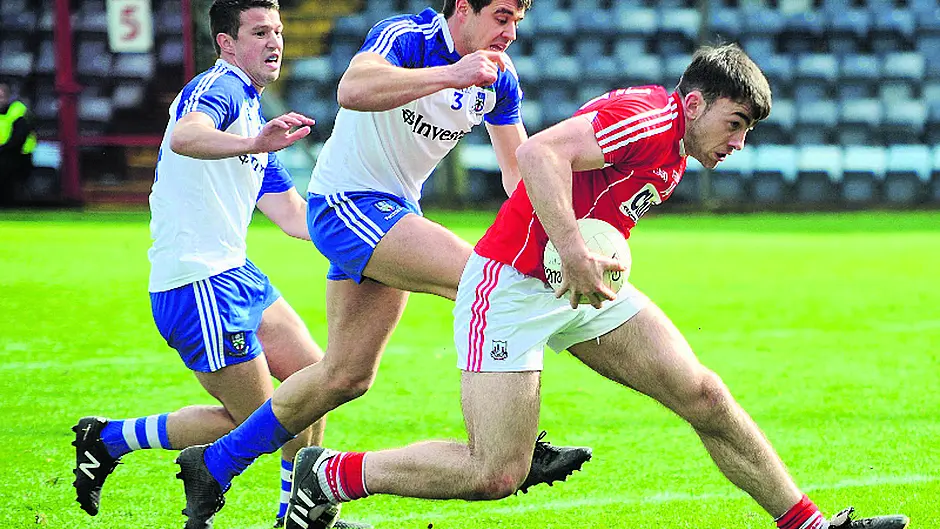Denis Hurley highlights five lessons learned from Cork’s league campaign
So, what did Cork's footballers learn from the national league campaign?
Games can’t be written off halfway through: Cork were relegated on scoring difference, having conceded 16 points more than they scored, compared to records of +12 for Donegal (who qualified for the semi-finals), -9 for Mayo and -11 Monaghan, all of whom finished on six points too.
Against Roscommon, Cork lost by 18 as the Connacht side were allowed to waltz through time and again to amass a tally of 4-25. Cork might not have ever had a chance of turning that game around, but thing about league games is that the scores have a residual effect so every one matters. A ‘mere’ ten-point loss that day would have given Cork a difference of -8 – it wouldn’t have been enough to put them in the semis but it would have propelled them two spots higher.
The number 14 shirt won’t be up for grabs for a while: Cork scored nine goals in their seven games, eight in matches where Peter Kelleher was playing, with the Kilmichael man left off for the Kerry clash due to the Munster U21 final. Of those eight, Kelleher was involved in all but the first, Brian Hurley’s penalty against Mayo after Mark Collins was fouled.
The big full-forward scored three, two against Roscommon and one against Dublin, set up Luke Connolly and Colm O’Neill against Roscommon and Monaghan respectively, was fouled for O’Neill’s penalty against the Dubs and had the pre-assist for Donal Óg Hodnett’s strike against Donegal.
The only way that he won’t have long-term ownership of the number 14 jersey is if he’s wearing eight alongside Ian Maguire at midfield, where he has also featured coming up the ranks.
Goals (don’t always) win games (but they do help): Following on from the above, it’s interesting to note when the Cork goals were scored, and the relationship with how many green flags the opposition raised.
In beating Mayo, Cork scored one and conceded none; in losses to Donegal and Roscommon they were outgoaled (1-2 and 3-4 respectively). The win over Down was goal-less while defeat to Dublin saw four goals shared evenly. Cork scored one goal and conceded one in the win against Monaghan.
Only the last game, away to Kerry, saw the losing team get more goals than the winners – unfortunately, from a Cork point of view.
In the drawn Munster final in Killarney last year, three goals were almost priceless in a Cork victory and a similar haul may be required in the important stages of the championship.
Cork won’t win the All-Ireland: Perhaps that looks a bit too definitive for so early in the year, but we’d wager that it’s a view most fair-minded fans have. While there will be some who will be up in arms that such an attitude is prevalent, realism has to be employed.
Cork lost four games of seven and, ahead of a championship game, one would expect the result to be repeated in three games (Roscommon the possible exception). That’s not to say that the Munster championship is a lost cause, but a win in the final against Kerry – assuming Tipperary are overcome in the semi-final – there would be a pleasant surprise.
Even then, three more games would need to be won in order for ultimate glory to be claimed. But, while that sounds defeatist, there is another bright spot accruing from the league showing (see below).
Relegation needn’t be a bad thing: The last time that Cork operated in Division 2, in 2009, they won it, beating Monaghan in the final. That set in train a run of four league titles – one Division 2 and three Division 1 – in a row as well as Munster titles in ’09 and 2012 and of course the All-Ireland win of 2010.
One would have to imagine that Cork will bounce back at the first attempt, given the strength of the panel relative to the other sides in there, and winning games and achieving promotion is the perfect way to build confidence ahead of the 2017 championship.
We’re not writing off the summer of 2016 by any means, but it is more likely to be developmental than anything else.










